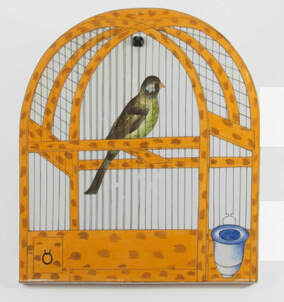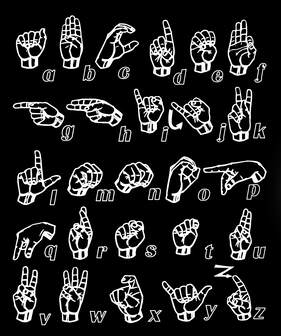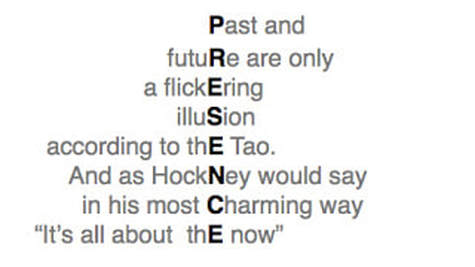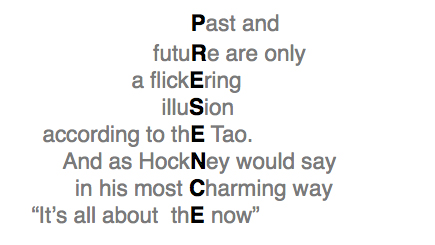The Boy Without A Name—And The Therapist Who Helped Him Understand That Objects Have Names4/14/2019  Philosopher Krishnamurti once commented that if you tell a boy the name of a bird he will never see the bird again, because he will believe he understands what a bird is by knowing its name. In other words, once it is named a "Robin" for example, it ceases to be a mysterious and wonderful flying creature in the mind of the boy. Thereafter he never sees the magnificent mystery that the bird truly is. He only sees a Robin. Krishnamurti’s profound statement suggests that we tend to reduce the wonder of the world by naming and objectifying everything. Long before human language evolved, birds, in this example, existed just fine without names. But giving them names and describing their features satisfies the human mind, which likes to categorize everything into neat rows of boxes called 'concepts'. But nothing could be said about any bird that could possibly encapsulate its true mystery. In the same way that your name and personal characteristics only describe the surface you. The deeper you is beyond categorization. Here’s The Flip Side I listened to a therapist being interviewed on KUOW, in Seattle. She was talking about helping a boy, Tony, understand that objects have names. Tony was 27, deaf and somewhat mentally challenged. The problem was that Tony was incapable of comprehending that things have names. Including himself. If the therapist pointed at him and signed "Your name is Tony." Tony would point at her and sign "Your name is Tony." And if she pointed at herself and signed “My name is Jill” Tony would point to himself and sign “My name is Jill.” No matter what she pointed at and named, Tony could only mimic back what she said.  Then she got the idea of communicating to an invisible person sitting in an empty chair so that Tony could observe her signing the names of things to the fictitious invisible person. Addressing the empty chair, she would point at an object in the room and sign what it was. Then she would go sit in the empty chair and sign back, to the now empty chair she had been sitting in before, that she understood the name of that object. Tony watched her do this over many sessions. Then one day Tony signed the question: “Does everything have a name?” And she signed “Yes”. And Tony go it. He looked around at all the things in the room and was stunned. His eyes widened, he slumped in his chair and began weeping. Because, according to the therapist, in that moment the world had instantly expanded for him. Everything in it suddenly had concrete meaning. From that point on Tony and the therapist conversed ravenously about all the things in his world. So as infants, before we developed language, things had no name. We looked at the world in wordless wonder. Then at some point we needed to develop language in order to get on in life, and we learned how to name things. But now, at this point in the evolution of human consciousness, even though we are capable of defining and naming everything, as we sometimes must, we are also capable of choosing not to. That is, to willingly leave experiences, people and things unnamed, unidentified and uncategorized. With a little intention and practice, we begin to experience the world differently. We begin to experience again the wordless wonder that we knew as a child and as the world truly is. See related posts: What Is A Tree? You Are Not Your Name You Are The universe
1 Comment
John Cage was known for his mesostic poems. Here is one I creates with a Post Personalism message: I found that David Hockney's statement intersected nicely with Eckhart Tolle's presence. I did this typographical collage inspired by John Cage's interest in mesostic prose and Zen, and combined it with David Hockney's declaration of the now and my interest is Eckhart Tolle's teachings on presence. (Coming soon. A list of talks in which Eckhart Tolle discusses presence in relation to artistic creativity) |
AuthorPatrick Howe, Artist, Author, Educator, Electronic Music Composer Blog Categories
|



 RSS Feed
RSS Feed
